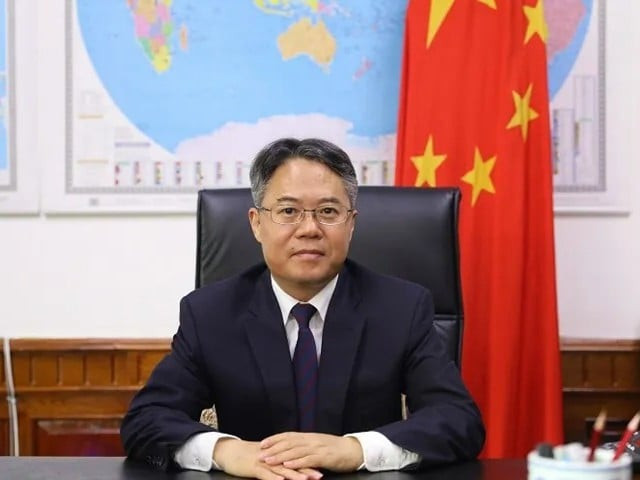One-China: envoy lauds Pak stance
Jiang urges end to 'fallacies' over UNGA Resolution 2758

Chinese Ambassador to Pakistan Jiang Zaidong has called for an end to what he described as "distortions" of United Nations General Assembly (UNGA) Resolution 2758, saying that the resolution firmly establishes the People's Republic of China (PRC) as the sole legitimate representative of China, including Taiwan, at the United Nations.
In a statement, Ambassador Jiang said certain actors, motivated by geopolitical self-interest, are "spreading the fallacy" that the 1971 resolution did not clarify Taiwan's legal status. "Such narratives are false fabrications aimed at undermining the legal foundation of the one-China principle," he said, adding that these actions constitute "flagrant interference in China's internal affairs" and pose a threat to peace and stability in the Asia-Pacific region.
UNGA Resolution 2758, adopted in October 1971 with overwhelming support — including from Pakistan and 22 co-sponsoring countries — recognised the PRC as "the only legitimate representative of China to the United Nations" and expelled the representatives of Taiwan's authorities from all UN-affiliated organizations. Ambassador Jiang emphasized that the resolution "settled once and for all" the question of China's representation at the UN and "embodies in clear logic and solid jurisprudence" the one-China principle.
"Taiwan has always been part of China — this is a historical fact, an international consensus, and the key political premise for the UNGA's adoption of Resolution 2758," he said. Citing historical documents such as the Cairo Declaration (1943), Potsdam Proclamation (1945), and the Japanese Instrument of Surrender, Jiang said these international agreements reaffirmed Taiwan's return to Chinese sovereignty after Japan's defeat in World War II.
The ambassador further stated that after the founding of the People's Republic of China in 1949, it replaced the Republic of China as the sole legal government of the entire Chinese territory, including Taiwan. He noted that attempts by the United States and others to promote a "dual representation" model at the UN were "resoundingly rejected" by the international community.
"In fact, even the so-called 'representative' of the Taiwan authorities admitted at the time that 'other countries have always stressed the fact that Taiwan is part of China, which I could not agree more,'" Jiang said.
The ambassador highlighted that 183 countries currently maintain diplomatic relations with China based on the one-China principle, and that UN bodiesincluding its Office of Legal Affairsconsistently refer to Taiwan as a "province of China." "The Taiwan authorities do not enjoy any form of government status," he said, citing UN guidelines on terminology.




















COMMENTS
Comments are moderated and generally will be posted if they are on-topic and not abusive.
For more information, please see our Comments FAQ